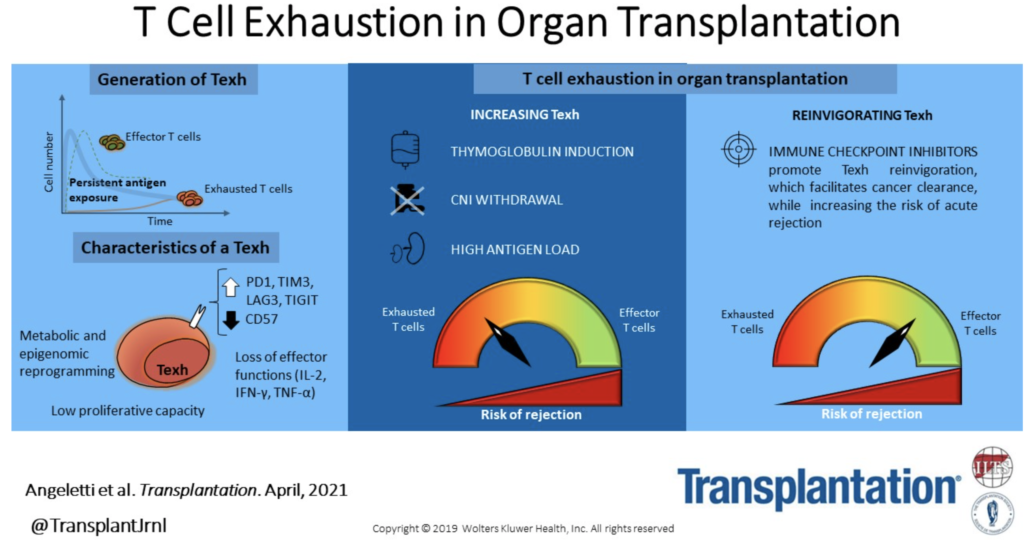Transplantation. 2021 Jun 9. doi: 10.1097/TP.0000000000003851.
Authors:
Angeletti A, Cantarelli C, Riella LV, Fribourg M, Cravedi P.
Abstract:
Exhaustion of T cells occurs in response to chronic exposure to self and foreign antigens. It limits T cell capacity to proliferate and produce cytokines, leading to an impaired ability to clear chronic infections or eradicate tumors. T cell exhaustion is associated with a specific transcriptional, epigenetic, and metabolic program and characteristic cell surface markers’ expression. Recent studies have begun to elucidate the role of T cell exhaustion in transplant. Higher levels of exhausted T cells have been associated with better graft function in kidney transplant recipients. In contrast, reinvigorating exhausted T cells by immune checkpoint blockade therapies, while promoting tumor clearance, increases the risk of acute rejection. Lymphocyte depletion and high alloantigen load have been identified as major drivers of T cell exhaustion. This could account, at least in part, for the reduced rates of acute rejection in organ transplant recipients induced with thymoglobulin and for the pro-tolerogenic effects of a large organ such as the liver. Amongst the drugs that are widely-used for maintenance immunosuppression, calcineurin inhibitors have a contrasting inhibitory effect on exhaustion of T cells, while the influence of mTOR inhibitors is still unclear. Harnessing or encouraging the natural processes of exhaustion may provide a novel strategy to promote graft survival and transplantation tolerance. Supplemental Visual Abstract; http://links.lww.com/TP/C250.

